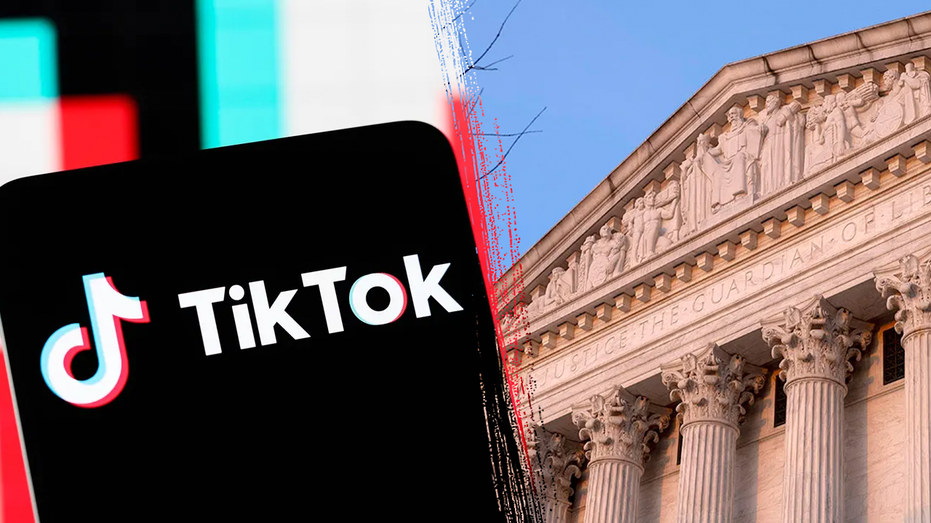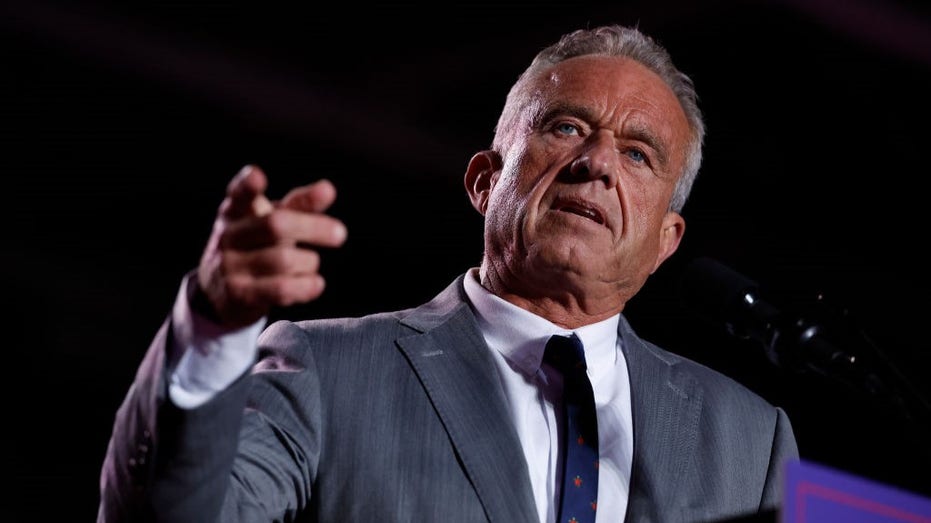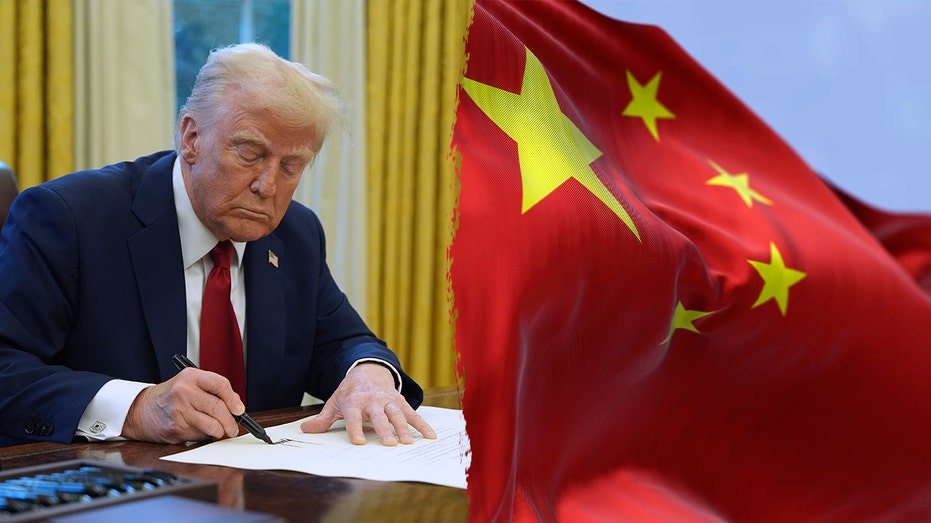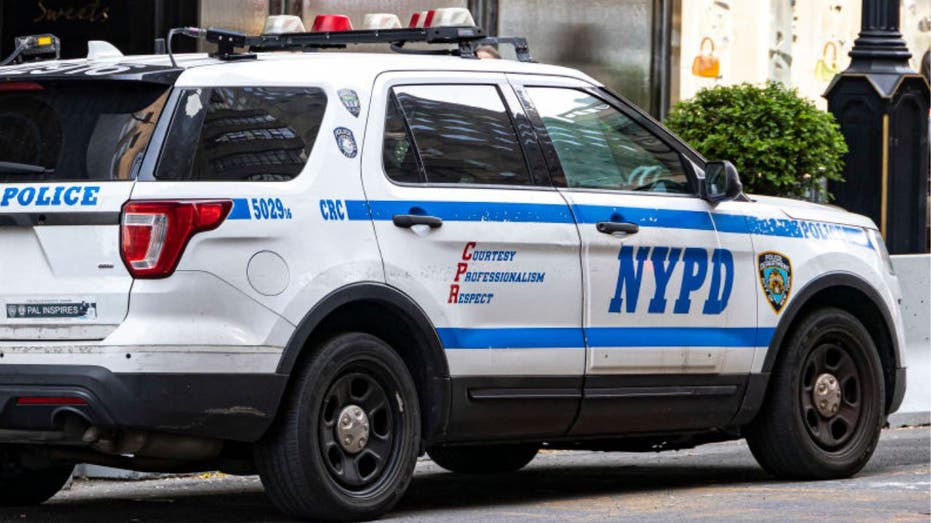- by foxnews
- 08 Apr 2025
Supreme Court upholds looming TikTok ban
TikTok, ByteDance and several users of the app sued to halt the ban, arguing it would suppress free speech for the millions of Americans who use the platform.

"There is no doubt that, for more than 170 million Americans, TikTok offers a distinctive and expansive outlet for expression, means of engagement, and source of community," the court wrote in the unsigned ruling. "But Congress has determined that divestiture is necessary to address its well-supported national security concerns regarding TikTok's data collection practices and relationship with a foreign adversary.
"For the foregoing reasons, we conclude that the challenged provisions do not violate petitioners' First Amendment rights. The judgment of the United States Court of Appeals for the District of Columbia Circuit is affirmed."
There were no noted dissents.
TikTok, ByteDance and several users of the app swiftly sued to block the ban in May, arguing the legislation would suppress free speech for the millions of Americans who use the platform. After a lower court upheld the ban, the Supreme Court agreed to hear TikTok's emergency request to either block or pause implementation of the law under a fast-track timeline just nine days before the ban was slated to go into effect.
President-elect Donald Trump did not immediately respond to the Supreme Court decision, which comes just days before his inauguration. As president, Trump could move to delay the law, either by not enforcing it vigorously- which would allow TikTok more time to find a buyer, or continue operating as-is-or take other actions that would uphold the status quo.
Trump said he spoke by phone Friday with Chinese President Xi Jinping hours before the Supreme Court decision was published. Trump described the conversation between the two as being "a very good one" both for China and the U.S. He noted that the two had discussed shared interests, including TikTok.
Trump has also invited TikTok CEO Shou Chew to attend his inauguration. Chew said he plans to attend.
During oral arguments, lawyers for the Biden administration reiterated the argument that TikTok's Chinese ownership poses a "grave" national security risk for American users.
U.S. Solicitor General Elizabeth Prelogar cited risks that China could weaponize the app, including by manipulating its algorithm to prioritize certain content or by ordering parent company ByteDance to turn over vast amounts of user data compiled by TikTok on U.S. users.
TikTok's lawyers, meanwhile, sought to frame the case primarily as a restriction on free speech protections under the First Amendment, which the company has argued applies to TikTok's U.S.-based incorporation.
Noel Francisco, TikTok's lawyer, argued that the U.S. government has "no valid interest in preventing foreign propaganda," and reiterated TikTok's position that the platform and its owners should be entitled to the highest level of free speech protections under the U.S. Constitution.
Francisco also argued TikTok cannot divest from its Chinese parent company, citing portions of its source code and intellectual property that are housed in China.
More specifically, laws that deal with First Amendment protections must be crafted to serve a compelling government interest, narrowly tailored to achieve that interest.
It's a difficult legal test to satisfy in court. But the U.S. Court of Appeals for the District of Columbia Circuit used it last month in considering the divestiture law, and still voted to uphold it- outlining a way that the Supreme Court could have theoretically considered the case under strict scrutiny and still opted to uphold the law.
During oral arguments at the Supreme Court, several justices appeared skeptical of the company's core argument, which is that the law is a restriction of speech.
The Supreme Court and its 6-3 conservative majority have been historically deferential to Congress on matters of national security.
The divestiture law in question passed Congress last year under the guidance of top Justice Department officials, who worked directly with House lawmakers to write the bill and help it withstand possible legal challenges.
In December, Trump hosted TikTok CEO Shou Zi Chew at his Mar-a-Lago resort, and later told reporters that his incoming administration will "take a look at TikTok" and the divestiture case.
Attorneys for the president-elect also filed a brief with the Supreme Court last month, asking justices to delay any decision in the case until after Trump's inauguration on Jan. 20.
The brief did not signal how Trump might act, but cited his request for the court to pause the ban from taking effect until Trump's inauguration.
Fox News' Bill Mears and Shannon Bream contributed to this report.
- by foxnews
- descember 09, 2016
Ancient settlement reveals remains of 1,800-year-old dog, baffling experts: 'Preserved quite well'
Archaeologists have recently unearthed the remarkably well-preserved remains of a dog from ancient Rome, shedding light on the widespread practice of ritual sacrifice in antiquity.
read more





